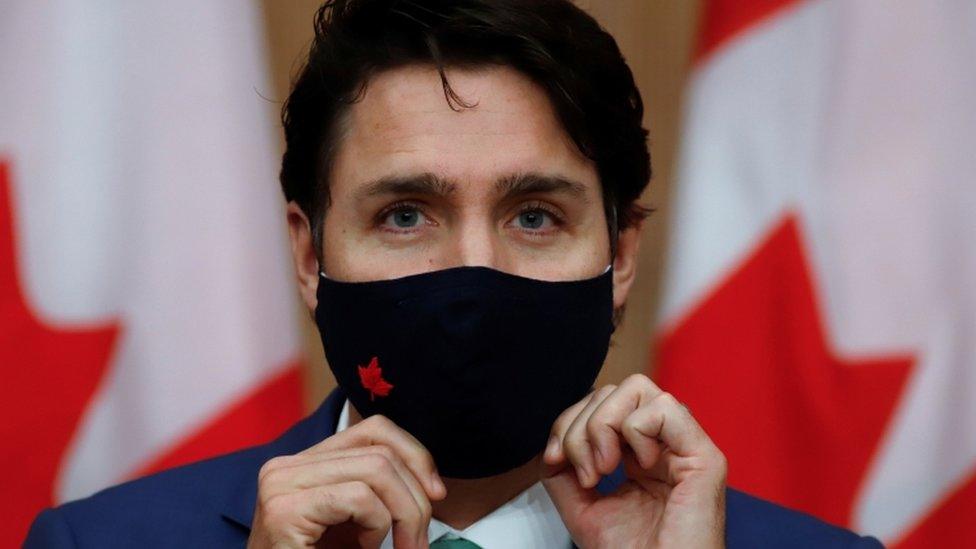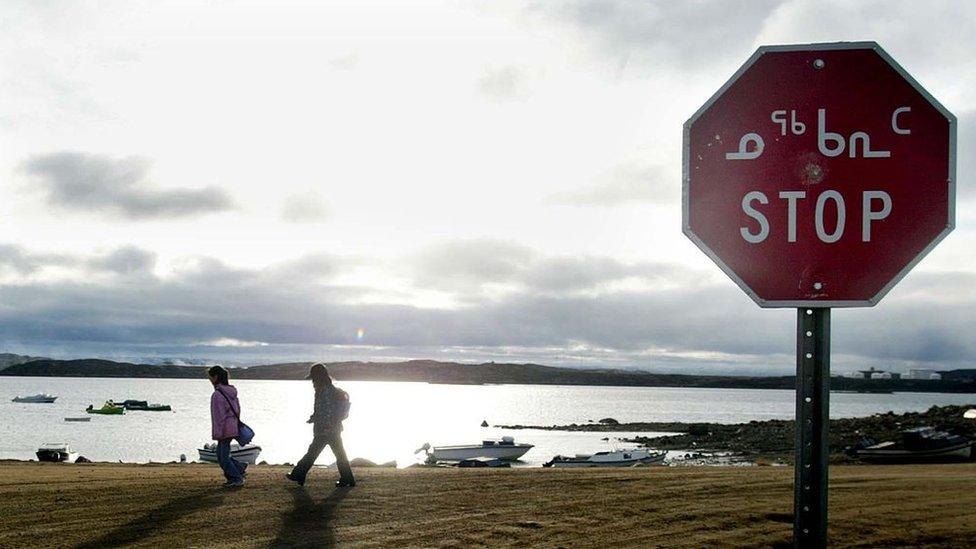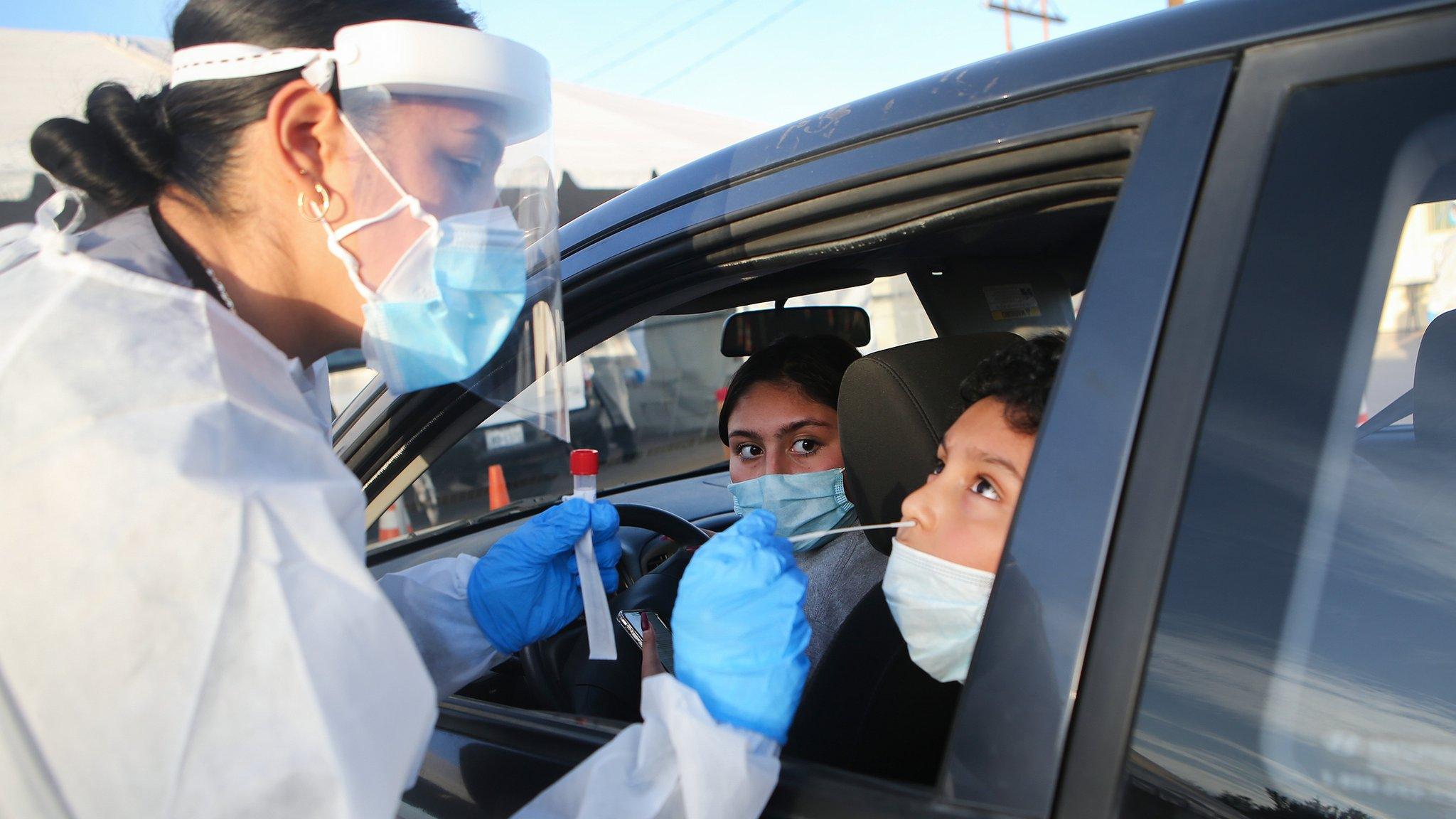Canada Covid cases rise, Nunavut to enter lockdown
- Published

After months of no Covid-19 cases in its communities, the Canadian territory of Nunavut is entering a two-week coronavirus lockdown.
The territory has seen rapid spread following the first confirmed community case on 6 November, in the hamlet of Sanikiluaq.
There are now 60 confirmed cases across four communities - Sanikiluaq, Rankin Inlet, Whale Cove and Arviat.
This comes as cases continue to rise in many parts of Canada.
There have now been over 302,192 cases of Covid-19 in Canada, and over 11,027 deaths.
Prime Minister Justin Trudeau is urging people to adhere to public health measures as various regions clamp down due to outbreaks.
On Tuesday, the country's chief public health officer, Dr Theresa Tam, warned of "very troubling developments" in the pandemic, including spread in hospitals, care homes and indigenous communities, where populations are especially vulnerable.
In Nunavut, the numbers shot up in the sparsely populated northern territory, which has about 35,000 residents.
The spread sparked enough concern that, as of Wednesday, gatherings will be restricted and non-essential businesses, schools and recreation facilities will be closed territory-wide for at least two weeks.
"We know that we have very vulnerable Nunavummiut here, we have lots of overcrowding and lots of underlying health issues," Nunavut Premier Joe Savikataaq told CTV news channel on Tuesday morning.
The territory's chief public health officer, Dr Michael Patterson, said that the last week "has shown us just how quickly Covid-19 spreads".
The federal government is sending a three-month supply of personal protective equipment to Nunavut as officials there work to contain the spread.
What is the situation in the rest of Canada?
Canada's most populous provinces, Quebec and Ontario, have had the highest number of cases - 125,072 and 95,496 confirmed infections, respectively.
Ontario has had over 1,000 new cases a day for almost two weeks straight, including 1,249 on Tuesday, and various restrictions have been brought back in recent weeks in parts of the province, including the city of Toronto.
Cases are rising quickly in Manitoba, which last week closed non-essential businesses and services, and limited social gatherings amid a sharp spike and concerns hospitals were nearing capacity. The province is reporting 270 new cases and a seven additional deaths.
British Columbia saw a record number of new cases over the weekend, adding almost 2,000 new cases to its total, and Alberta is seeing a surge in new cases, with targeted measures brought into effect in specific communities.

A SIMPLE GUIDE: What are the symptoms?
TEENAGE RITUALS: Growing up, interrupted
SUPERSPREADERS: What makes some events so risky?

Atlantic Canada has fared better, with the four east coast provinces keeping a second wave of coronavirus largely at bay.
After months of restrictions, the Atlantic provinces formed their own "travel bubble" in July, allowing free travel between themselves without mandatory quarantine. There are currently 65 active cases across the entire region.
But officials there remain cautious due to the rise in cases in other parts of Canada.
While there were no new cases of coronavirus to report on Tuesday in the small island province of Prince Edward Island, health officials still announced that new indoor mandatory mask measures would be in place by late week.
"This isn't about the cases here, this is about the turbulence we're seeing across the country," provincial premier Dennis King said on Tuesday.
- Published19 October 2020

- Published17 November 2020
